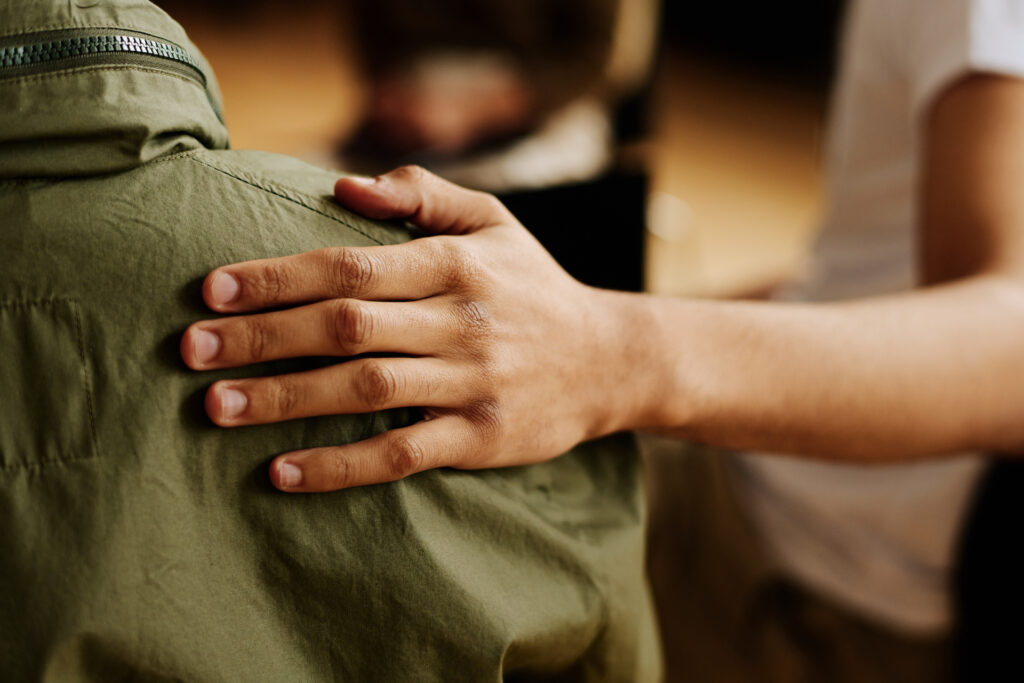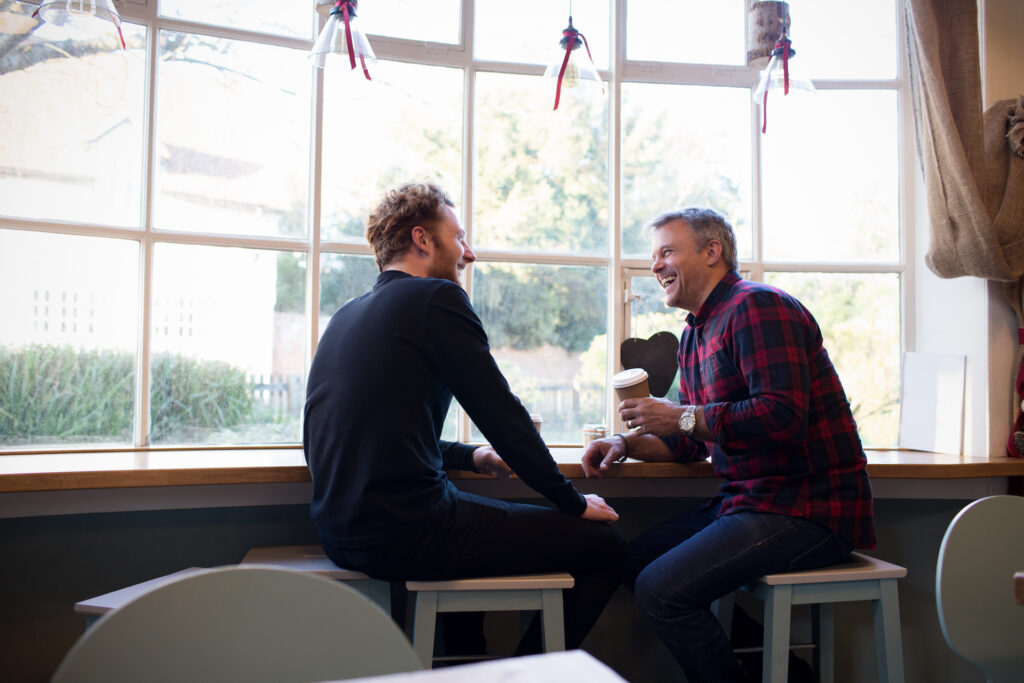One of the fundamental beliefs that we hold at our centres—Sunshine Coast Health Centre and Georgia Strait Womens Clinic—is that everyone deserves to be treated with kindness, empathy, and compassion, regardless of their circumstances, past decisions and life events.
One of the ways that we uphold that belief is by practicing and encouraging Unconditional Positive Regard (UPR). In this article, we’ll be discussing what UPR is, how it benefits clients in treatment and recovery, and how it can be implemented at all levels of care.
What is Unconditional Positive Regard?
At its core, Unconditional Positive Regard is about accepting and valuing individuals. The concept was first introduced by psychologist Carl Rogers in the 1950s as a key component of his humanistic approach to therapy. The American Psychological Association (APA) defines UPR as “an attitude of caring, acceptance, and prizing that others express toward an individual irrespective of their behaviour and without regard to the others’ personal standards.”
It is often contrasted with conditional positive regard, wherein acceptance and esteem are provided to people on a basis that depends on the acceptability of their behaviour based on our own opinions of what is “good” or “bad”.

UPR continues to be a fairly controversial topic in psychology, especially when it comes to issues related to addiction and substance use, which are deeply intertwined with guilt, shame, and stigma. In our opinion, much of the controversy around UPR is based on misunderstanding the concept. In the section below, we debunk some common misconceptions.
Unconditional Positive Regard Does Not Mean…
1. Accepting All Behaviours
One common misconception about UPR is that it means accepting or validating all behaviours, even harmful ones. It’s really important to note that UPR does not preclude us from having boundaries towards harmful or destructive behaviours or ignoring the consequences of those behaviours. Rather, it means accepting the person and their experiences without judgment as a way to support them in moving forward.
2. Enabling
Another misconception is that providing UPR means enabling people to continue problematic behaviours. Rather, the role of UPR is to create a supportive environment that helps the person explore their experiences—including the way that their choices affect themselves and others—and ultimately creates the space for them to make positive changes.
3. Avoiding Confrontation
Some folks seem to believe that Unconditional Positive Regard means avoiding confrontation or difficult conversations. But there’s no reason UPR should mean shying away from honest and uncomfortable conversations about the impact of behaviours on themselves and others.
4. Being Overly Optimistic
Unconditional Positive Regard is sometimes associated with a sense of misplaced optimism and even naivete. In practice, UPR is about providing support and encouragement while also acknowledging the challenges and setbacks that may arise during the recovery process.
Some More Considerations For UPR
Unconditional Positive Regard is not just for people who are ready to change. It can be helpful for anyone regardless of their readiness as it provides a supportive space to explore their experiences—which may naturally lead to that readiness.

Unconditional Positive Regard is not a one-time thing that can solve all of a person’s problems. UPR is an ongoing process that requires ongoing practice and is best thought of as an attitude rather than a treatment or intervention.
Unconditional Positive Regard is not only for therapy. While UPR is often associated with clinical treatment, it can be applied in a wide range of settings, including group therapy, peer support groups, and even in interpersonal relationships outside of treatment. Moreover—and this may be a hard pill to swallow—UPR can even be something we apply to ourselves.
How Unconditional Positive Regard Benefits Our Clients
At our centres, we recognize that recovery from addiction, mental health, and trauma is a journey that takes time and effort. In our experience, a human-centred approach that values people’s experiences without villainizing their past or present is foundational to that journey.
By treating everyone with kindness, empathy, and compassion and encouraging others to do the same—which includes extending those values to themselves!—we foster a culture of mutual support and understanding, which lays the foundation for healing. Through our approach, we strive to inspire others to do the same.
Get In Touch Today
Sunshine Coast Health Centre and Georgia Strait Women’s Clinic are world-class centres for addiction and mental health treatment. We take an approach that recognizes the importance of the physical, psychological, social and spiritual aspects of individuals in treatment and recovery. If you or someone you know is struggling with substance use and/or mental health, give us a call today.



